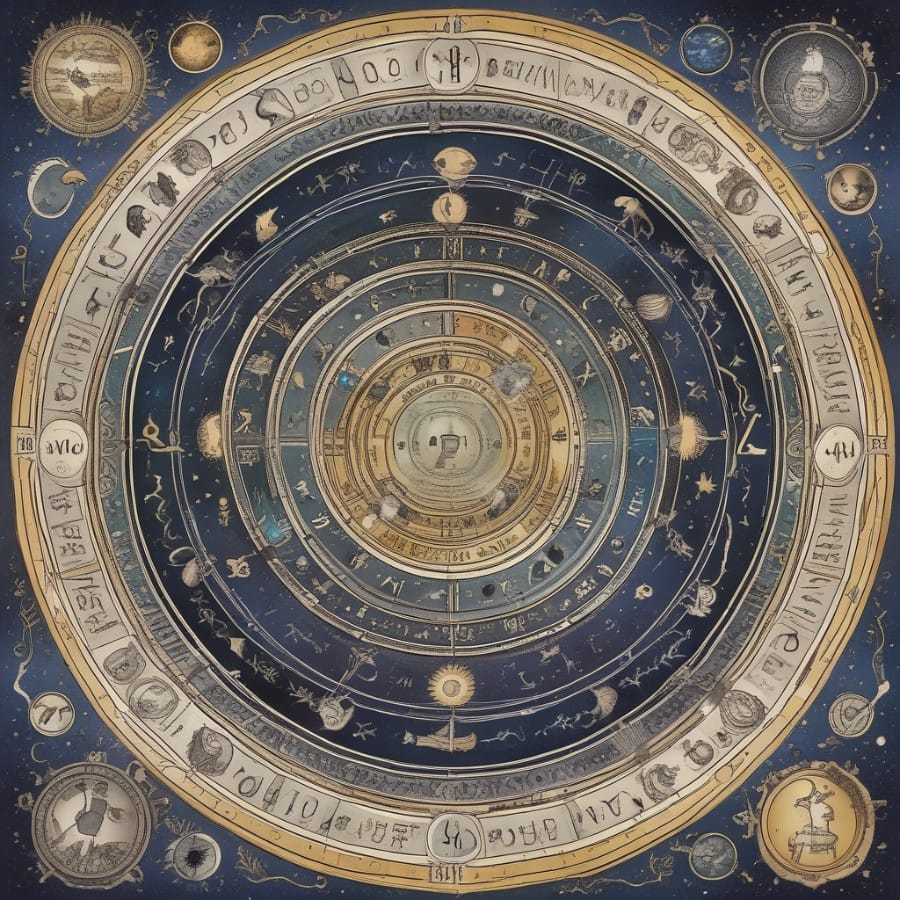What Is Happening In The Universe Today Astrology

Astrology has fascinated humanity throughout history, exploring personality traits, relationships, and future occurrences. Its foundation lies in the belief that celestial bodies' positions at birth offer insights into one's character and destiny. The twelve zodiac signs, representing distinct qualities, are associated with the elements of fire, earth, air, or water. Astrologers analyze birth charts to discern the influence of planets on life paths and assess compatibility between signs for potential relationships. While lacking scientific proof, astrology aids in self-awareness, understanding others, and decision-making for many individuals. Additionally, astrology encompasses specialties like horary astrology, predicting the future through questions, and electional astrology, selecting auspicious times for significant events. Sarah's experience exemplifies astrology's potency: amidst struggles, an astrologer predicted challenges but also highlighted Sarah's inner strength, instilling confidence. Through perseverance, Sarah emerged stronger, illustrating astrology's ability to offer guidance and inspiration during uncertain periods.
Recent Discoveries in Space Exploration
Astronomical discoveries have been captivating us recently! Discoveries such as exoplanets with diverse characteristics, gravitational waves, dark matter, primordial black holes, and rapid radio bursts from unidentified origins have broadened our understanding of the cosmos. We are gradually unveiling its vast complexity. The possibilities for further thrilling revelations are bound
Astrology and its Relationship to Space
Astrology, an ancient practice, revolves around the celestial bodies such as stars and planets, which astrologers believe influence human behavior and events. By analyzing their positions and movements, astrologers gain insights into various aspects of life and make predictions. Each planet is attributed with distinct qualities that are believed to shape personality traits and experiences on Earth; for instance, Mars is associated with assertiveness, while Venus symbolizes harmony.
Mundane astrology examines global events through celestial patterns, offering insights into historical occurrences and their cosmic connections. Some astrologers even extend their studies beyond our solar system to understand the impacts of exoplanets. Interestingly, astronauts occasionally express interest in astrology during space missions, finding solace and wonder in the vastness of space as they peer through spacecraft windows. Across centuries, astrology has remained a guiding force, providing unique perspectives on human existence within the cosmic landscape.
Current Developments in Astrology
Astrology – an enduring fascination for centuries – continues to expand. Recent advancements illuminate the cosmos and offer insights into our daily lives.
In the contemporary era, astrologers leverage digital platforms to engage a broader audience and offer personalized readings. AI-driven applications provide in-depth horoscopes tailored to individual preferences.
Researchers delve into the correlations between planetary positions, cosmic forces, and terrestrial occurrences, revealing fascinating connections. For instance, NASA has observed that solar flares can impact human emotions and abilities, demonstrating the interplay between celestial phenomena and human experiences.
Astrology transcends mere frivolity; it represents a complex tapestry of knowledge that binds us to the cosmos. It serves as a source of guidance, facilitating our understanding of ourselves and our position in the universe.
Astrology continues to fascinate us with its ongoing discoveries and insights, offering a unique lens through which we can explore the universe. By studying the arrangement of stars and interpreting astrological charts, we uncover hidden knowledge, revealing the mysteries that the cosmos holds. Through astrology, we gain a distinctive perspective on the universe, observing the intricate dance of planets and stars and pondering the significance of their positions and movements at the time of our birth. While some may dismiss it as mere superstition, its enduring popularity suggests there is merit to its teachings.
In our exploration of astrology, we've delved into topics such as zodiac signs, planetary alignments, and lunar cycles, each providing valuable insights into how cosmic energies can impact our lives. The interconnectedness of these celestial phenomena offers a rich tapestry for interpreting and understanding the complexities of human existence.
However, it's important to recognize that astrology is not meant to replace critical thinking or scientific inquiry. Rather, it offers an additional perspective through which to view and comprehend the world. Regardless of personal beliefs, astrology holds a significant place in human history and culture.
A word of caution: While astrology can provide illuminating insights, it should be tempered with rational thought and personal discernment. While it can empower self-reflection, ultimately, our decisions and actions are shaped by our own agency, not predetermined by the configurations of the stars and planets.
Frequently Asked Questions
Q: What is astrology?
A: Astrology posits that the positions and movements of celestial bodies exert influence over human behavior and personality traits.
Q: What is happening in the universe today according to astrology?
A: Astrologers assert that the current positions of planets and stars can affect events on Earth and shape individual horoscopes.
Q: How does astrology work?
A: Astrology operates on the premise of interpreting the positions of celestial bodies at a person’s birth time, which is believed to unveil information about their personality and future.
Q: Can astrology predict the future?
A: Astrology lacks scientific validation as a method for predicting future events; rather, it is thought to offer insights and possibilities rather than precise forecasts.
Q: Is astrology a science?
A: Astrology is deemed a pseudoscience due to the absence of scientific proof or validation for its methods and predictions.
Q: Can astrology be used for making important life decisions?
A: While some individuals may utilize astrology in decision-making, it is generally cautioned against relying solely on astrological guidance for significant life choices.